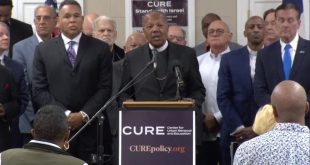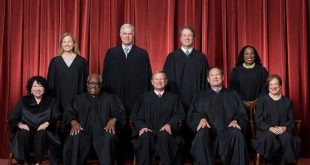 A panel of the U.S. Court of Appeals for the Eighth Circuit last week ruled in favor of religious non-profits that don’t want to provide employees with contraceptives that could induce abortions.
A panel of the U.S. Court of Appeals for the Eighth Circuit last week ruled in favor of religious non-profits that don’t want to provide employees with contraceptives that could induce abortions.
CNS International Ministries, Inc. and Heartland Christian College objected to the Obamacare mandate and the so-called accommodation on religious grounds. The accommodation takes religious objections into account but still requires the organization to be indirectly involved with the mandate. These organizations want nothing to do with abortion drugs. An excerpt of the opinion (emphases added):
In light of CNS and HCC’s sincerely held religious beliefs, we conclude that compelling their participation in the accommodation process by threat of severe monetary penalty is a substantial burden on their exercise of religion. See Hobby Lobby, 134 S. Ct. at 2778 (“Arrogating the authority to provide a binding national answer to this religious and philosophical question, [the government] in effect tell[s] the plaintiffs that their beliefs are flawed. For good reason, we have repeatedly refused to take such a step.”). That they themselves do not have to arrange or pay for objectionable contraceptive coverage is not determinative of whether the required or forbidden act is or is not religiously offensive. See id. at 2778; Thomas, 450 U.S. at 715. We thus conclude that CNS and HCC have shown a substantial likelihood of success on the merits of their claim that the contraceptive mandate and accommodation process impose a substantial burden on their religious beliefs.
We’ve argued that the accommodation still requires Christian-owned business and non-profits to be involved with the mandate. The entity has to sign a government form stating its objection, and the government arranges for a third-party to provide the coverage. This is what the non-religious don’t understand: the business or non-profit if still involved, though indirectly.
The Washington Post noted that “every other appeals court that has considered the issue” found the accommodation good enough. “Such splits among the courts usually compel the Supreme Court to settle the issue.”
The Supreme Court ruled in Burwell v. Hobby Lobby (2014) that the government can’t require closely held corporations with a religious objection to provide contraceptive coverage. Under the Religious Freedom Restoration Act, the government must have a compelling interest in a matter to burden (read: violate) religious freedom. How is providing birth control to employees a compelling government interest? Considering how low-cost most contraception is, including condoms and birth control pills, one wonders about the real motive behind compelling Christian owners to provide these drugs.
In any case, we don’t leave our religious freedom behind when we run a business or a non-profit.
Photo credit: American Life League (Creative Commons) – Some Rights Reserved
 CURE News and Clergy Blog News and Commentary for Christians
CURE News and Clergy Blog News and Commentary for Christians



